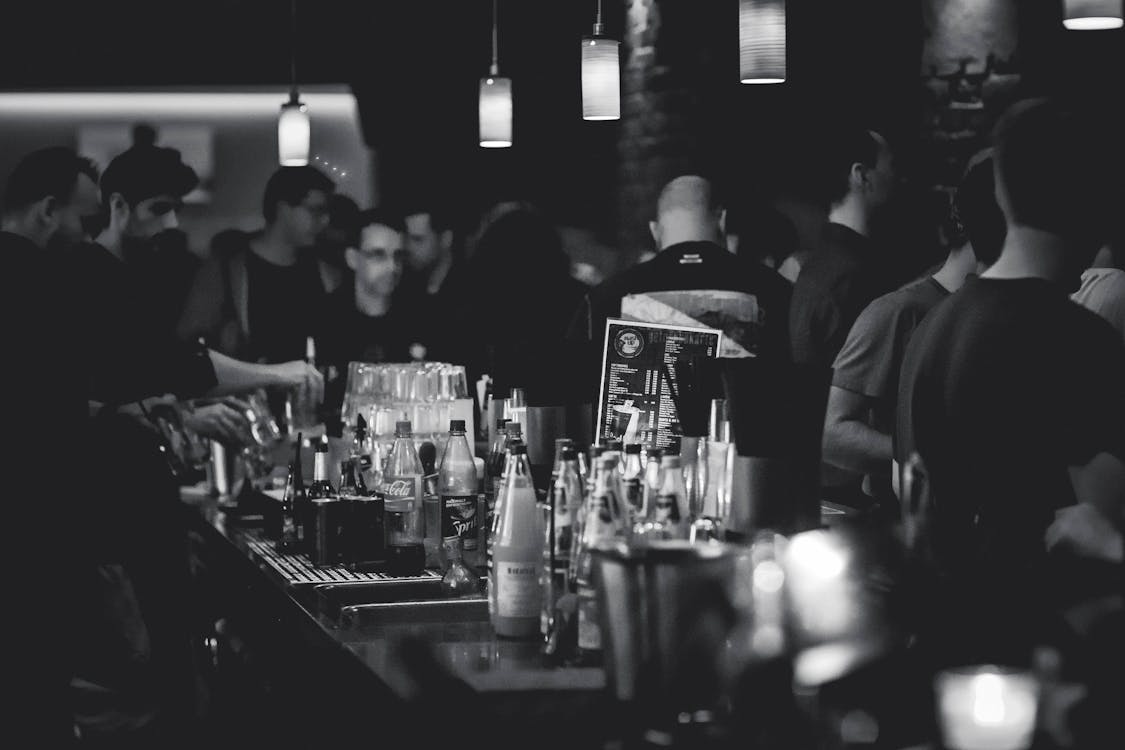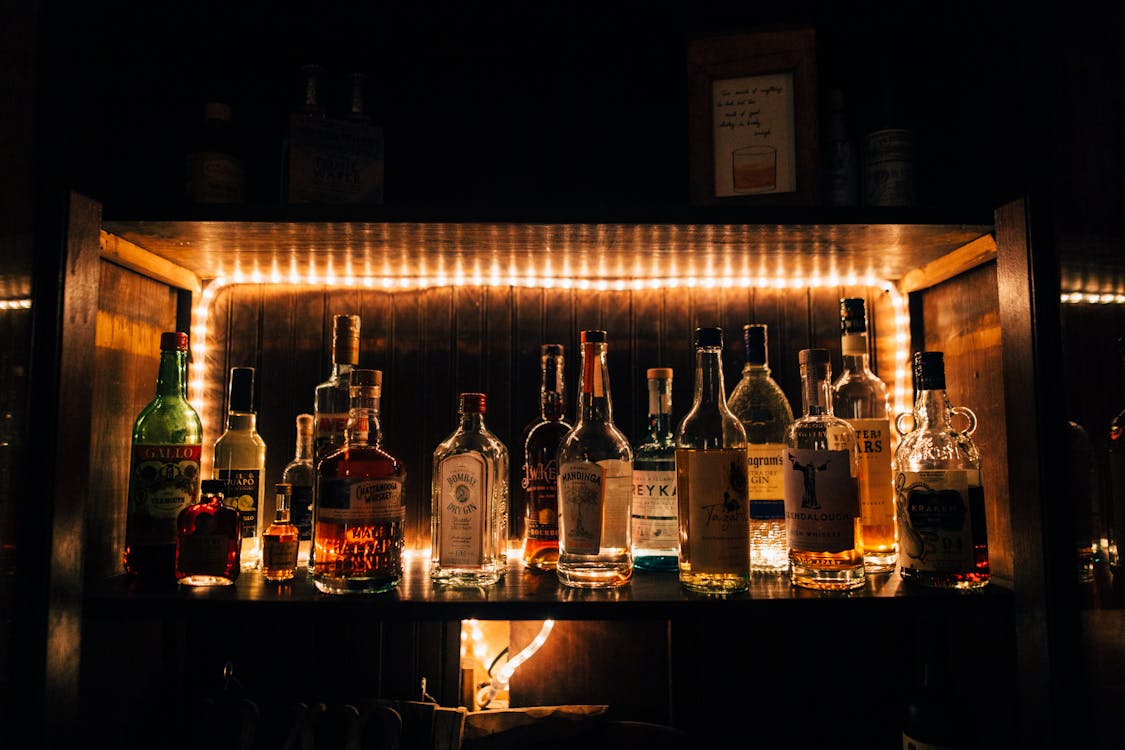Almost everyone is familiar with energy drinks. They are gaining more and more popularity among young people because of their stimulating ingredients.
Energy drinks are functional beverages known for boosting energy and focus. Typically, it contains Caffeine, Guarana, B vitamins, Taurine, and other ingredients along with sugar.
People use them as an early morning pick-me-up or a pre-workout drink all thanks to the caffeinated energy it gives. But What people do not get is that energy drinks can also harm your body and cause adverse effects, especially when mixed with alcohol.
Now, you must be thinking about whether energy drinks contain alcohol. No, they don’t! Energy drinks are non-alcoholic beverages.
But In the teens to mid-twenties age bracket, mixing alcohol with energy drinks is a well-known killer. Caffeine’s octane masks the signs of intoxication, which can lead you to drink more.

Are Energy Drinks Alcoholic?
No, energy drinks are not alcoholic beverages.
According to the American Beverage Association, energy drinks are non-alcoholic beverages and should not contain any percentage of alcohol in them. Energy drink brands like Red Bull, Monster, and Bang energy have no alcohol in them. Generally, they contain large amounts of caffeine and sugar.
Energy drinks are heavily promoted in settings popular among teenagers and young adults. Two-thirds of energy drink users are between the ages of 13 and 35, particularly boys accounting for two-thirds of the market.

What are the Ingredients in an Energy Drink?
A typical energy drink is loaded with caffeine. A standard 8.4-oz energy drink has 80 mg of it whereas, a typical 16-oz energy drink has 160 mg of caffeine. It is half the amount of caffeine in a similar-sized cup of coffee, which contains 330 mg of caffeine per 16 oz.
The majority of brands on the market are high in glucose, while some do provide artificially sweetened options too. Following are some of the common ingredients in energy drinks;
- Taurine
- Methylxanthines
- Vitamin B
- Ginseng
- Guarana
- Yerba mate
- Maltodextrin
- Inositol
- Carnitine
- Creatine
- Glucuronolactone
- Ginkgo Biloba
Caffeine
Caffeine is a stimulant naturally found in the coffee fruit. It is a primary ingredient in many sodas and energy drinks. Although it most widely used psychoactive drug, its safety and prolonged effects are mixed.
Caffeine in doses under 200 milligrams makes you alert and focused. It works by stimulating your nervous system by blocking the adenosine receptors and making you less tired. Adenosine receptors trigger the feeling of fatigue. Caffeine binds with them to mask this fatigue and makes you more alert.
Sugar

Sugar alone plays a significant role in energy drinks, providing more energy, enhancing flavor, contributing to taste, and ensuring a long shelf life. A 12-ounce can of energy drink has ten teaspoons of sugar along with 160 calories.
Energy drinks contain added sugar (sucrose, glucose, or maltodextrin) which has no nutritional value, only calories. There are also some sugar-free versions containing Aspartame, Acesulfame, and other sugar substitutes.
B vitamins
B vitamins are the most common micronutrients found in energy drinks. Vitamin B3 (Niacin), Vitamin B6 (Pyridoxine), and Vitamin B12 are the most commonly used B vitamins in energy drinks (Cobalamin). Some brands also contain Vitamin B2 (riboflavin) and Vitamin B5 (Pantothenic acid).
The body needs B vitamins to do one or more of the following functions which are as under;
- Convert food to energy
- Maintain normal cell development, function, and growth.
- Create new genetic material, such as DNA.
Glucuronolactone
Glucuronolactone is a naturally occurring substance found in plants and synthesized by the body. It aids in the elimination of toxic chemicals from the body. Because there has been little research on glucuronidation e, it is not yet known if it is bad or good in energy drinks.
Taurine
Taurine is an amino acid present in meat, fish, dairy products, and human milk that aids in protein synthesis. Although some studies suggest that taurine can help athletes perform better, there is little evidence to back this up.
Guarana
Guarana is a caffeine-containing plant that contains between 40 to 80 mg of caffeine per gram. Guarana has 4 to 6 times more caffeine than coffee beans.
Therefore Its effect lasts longer than caffeine. Furthermore, when coupled with sugar, like in energy drinks, the effects of guarana may be higher than the caffeine in a cup of coffee.
Energy Drinks with Alcohol
Mixing energy drinks with alcohol is quite a popular trend among college students and young drinkers. This trend was welcomed by some manufacturers too.
Some pre-mixed versions of energy drinks were also introduced into the market. Four Loko was one of them, Although it was sold as an energy drink it had up to 12% of Alcohol in it.
But according to FDA, these beverages posed harm to your health, especially among teenagers and new drinkers. So, energy drinks like Four Loko dropped out alcohol from their ingredients.
Even though these specific drinks are not available anymore, it is easy enough to mix energy drinks with alcohol into a cocktail. Mixing alcohol with your energy drink this way is threatening to health.
Here are some energy drinks based on alcohol;
| Energy Drinks | Availability |
| Four Loko | Changed formula |
| Moonshot | Discontinued |
| MAX Vibe | Discontinued |
| JOOSE | Discontinued |
| Liquid Charge | Discontinued |
| CORE | Changed formula |
| Rockstar 21 | Discontinued |
| 3SUM | Discontinued |
| Sparks | Formulation changed |
| Torque | Discontinued |
| Molson KICK | Discontinued |
| TILT | Formulation changed |
| Budweiser E | Discontinued |
| 24/7 | Discontinued |
| Spykes | Discontinued |
| Mate Vesa (yerba mate beer) | Available |
| 3 A.M. Vodka (Vodka, caffeine, taurine, guarana) | Available |
As you can see from the above table, all the alcohol-based brands are a matter of the past. Some were discontinued and some removed alcohol from their ingredients list. Only malt beers containing alcohol are available in the market.
What happens when you mix alcohol with energy drinks?
Energy drinks are loaded with caffeine and other stimulants to enhance your cognitive abilities. But when it meets alcohol, it masks the depressive effects of alcohol. Mixing them may weaken your body’s ability to notice how much alcohol you’ve had by giving you the impression that you’re not drunk.
It can also induce severe dehydration. You may face frequent urination as a result of the combined action of the alcohol and caffeine in the energy drink, increasing your risk of harm from alcohol.
Is it safe to mix alcohol and energy drinks?
No, it is not safe to mix Alcohol With Energy drinks
From a health standpoint, the stimulants in energy drinks Impact your body by raising your heart rate and blood pressure. Heavy breathing, elevated heartbeat, increased alertness, and less fatigue are all possible adverse effects of stimulants like caffeine.
Whereas alcohol depresses coordination, motor abilities, judgment, and memory, as well as causing blackouts.
Drinking too much alcohol can harm your heart and mixing it with energy drinks can make that danger even greater. If you consume alcohol mixed with caffeine regularly, your blood pressure will rise, increasing your risk of stroke, heart attack, and heart disease.
In addition, long-term excessive alcohol consumption can harm your kidneys and liver.
Caffeine and alcohol both cause atrial fibrillation (an irregular heartbeat), therefore persons who already have it should be extra cautious when drinking alcohol, caffeine, or both.
What are the risks?
Research shows that mixing alcohol with energy drinks is riskier than consuming alcohol alone. Because the stimulating effects of coffee combined with the brain-slowing effects of alcohol can cause people to become “wide-awake drunk.”
People drinking alcohol with energy drinks are more at risk of getting into accidents or fights. Since alcohol makes you tired and drunk, you end up going home. But when mixed with energy drinks You do not feel drunk and end up staying out late, drinking more, and engaging in dangerous situations.
Are energy drinks safe?
Energy drinks alone are safe as long as you drink them in moderation. It’s probably fine to drink it occasionally if you’re studying for a test and have to pull an all-nighter.
But most drinkers though, don’t keep them for special occasions, and they don’t always stop after one can or a shot.
The caffeine content in an 8-ounce cup of coffee is around 100 mg. While some energy drinks offer a similar amount of caffeine, some have more than 350 milligrams per can or shot.
According to FDA, more than 400 milligrams of caffeine can be unsafe for you. Excessive caffeine can cause:
- High blood pressure
- stroke
- Dehydration
- Jitters
- Nausea
Final verdict
Although alcoholic energy drinks are long gone, the trend of mixing alcohol with them is still a problem. If you want to enjoy energy drinks and alcohol drink them in moderation.
Knowing your limits and keeping track of your caffeine intake will provide you with a boost in energy. Also, it will improve your physical and mental performance without causing any unwanted side effects.
